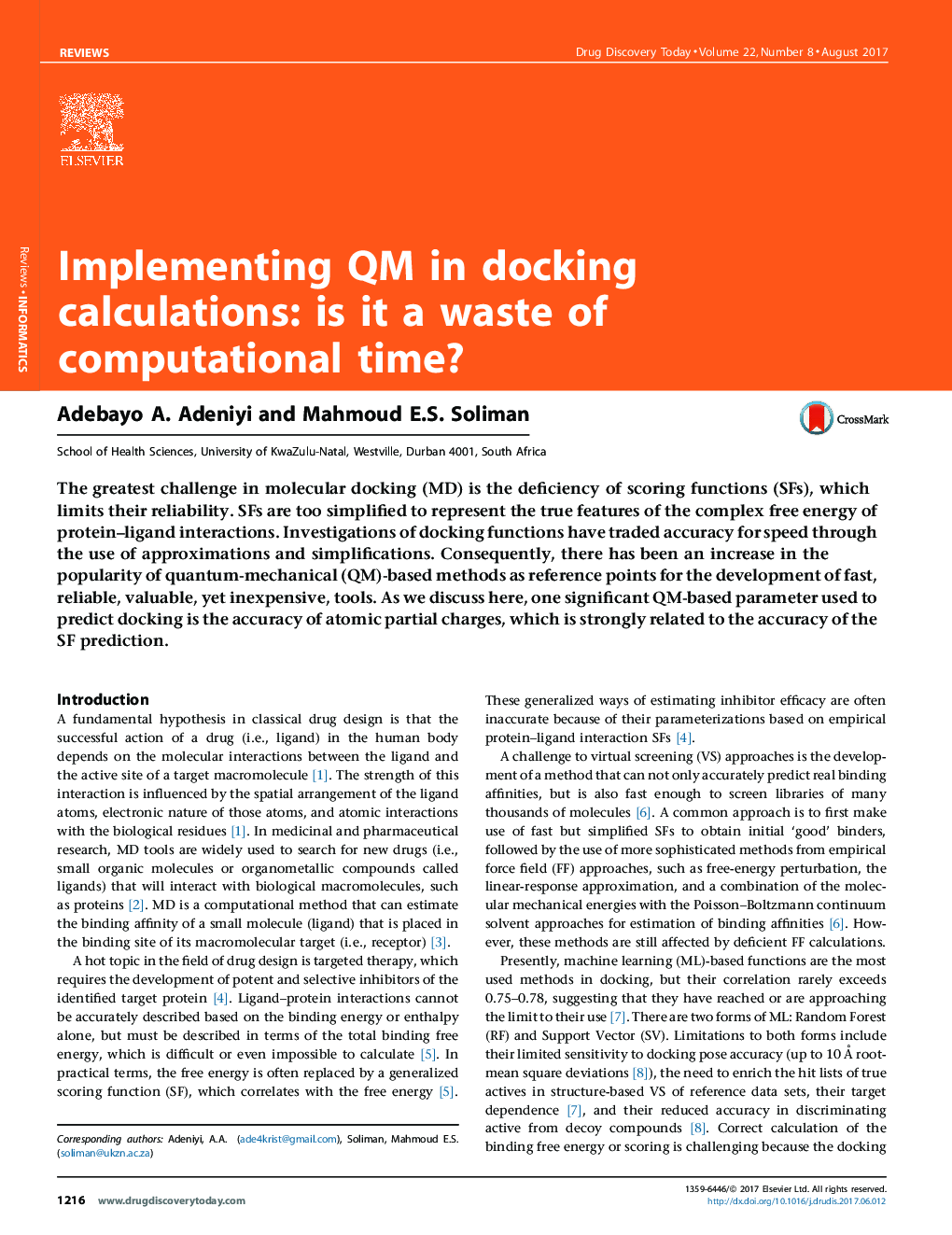| Article ID | Journal | Published Year | Pages | File Type |
|---|---|---|---|---|
| 5521141 | Drug Discovery Today | 2017 | 8 Pages |
â¢Docking programs depends on quality of the search algorithm and the scoring functionsâ¢There are problems and limitations of docking scoring methodsâ¢Many factors are enhancing the increasing popularity of QM-based methods in docking.â¢QM computed parameters like atomic charges significantly affect the accuracy of docking protocol.
The greatest challenge in molecular docking (MD) is the deficiency of scoring functions (SFs), which limits their reliability. SFs are too simplified to represent the true features of the complex free energy of protein-ligand interactions. Investigations of docking functions have traded accuracy for speed through the use of approximations and simplifications. Consequently, there has been an increase in the popularity of quantum-mechanical (QM)-based methods as reference points for the development of fast, reliable, valuable, yet inexpensive, tools. As we discuss here, one significant QM-based parameter used to predict docking is the accuracy of atomic partial charges, which is strongly related to the accuracy of the SF prediction.
Graphical abstractDownload high-res image (108KB)Download full-size image
